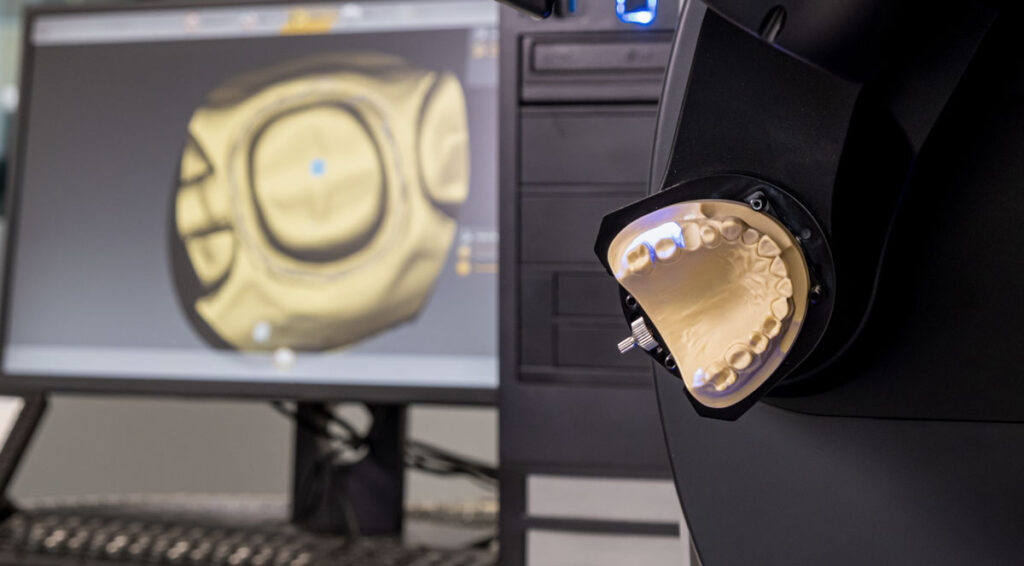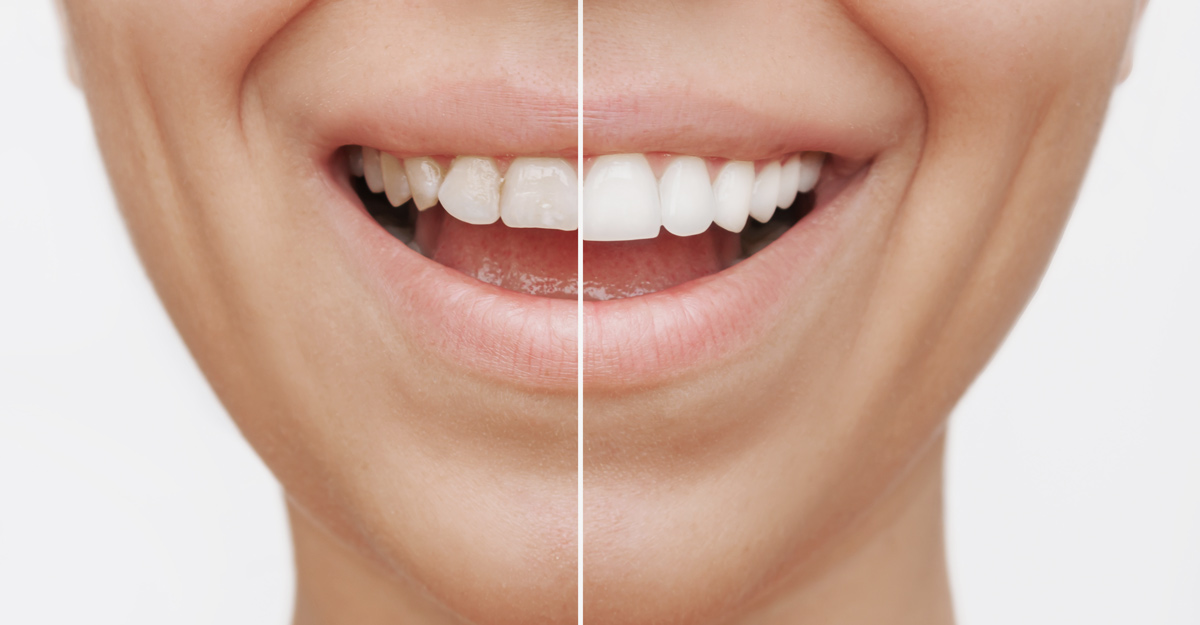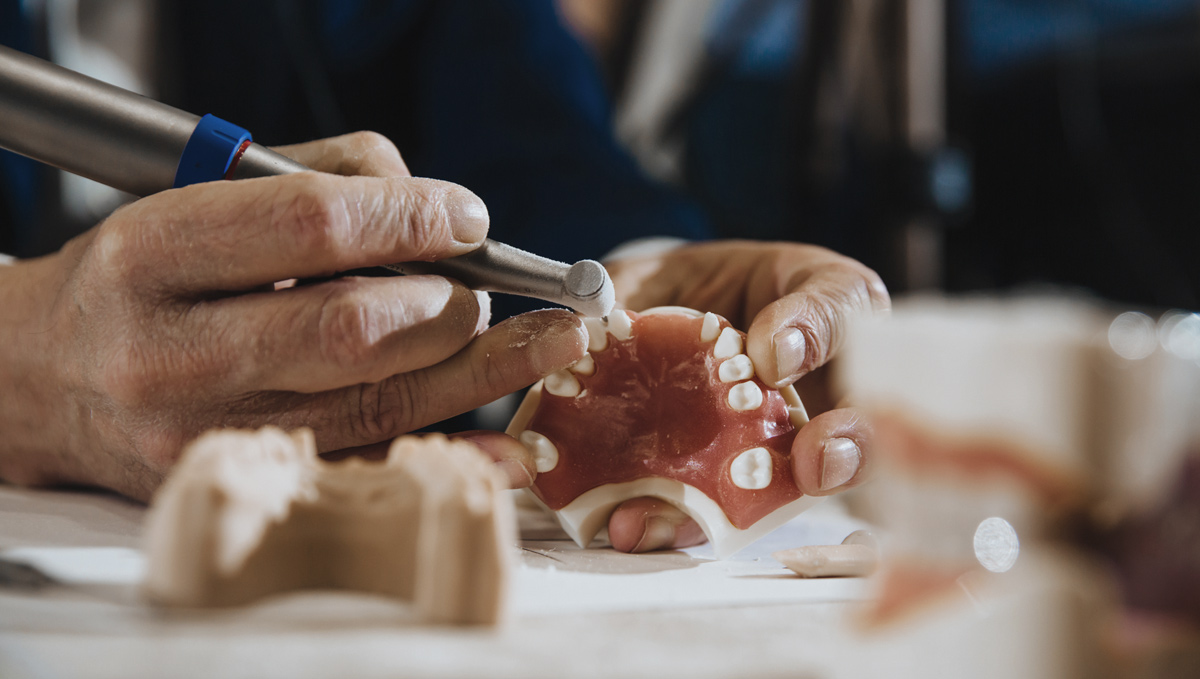In the evolving world of private dentistry in the UK, practices are increasingly recognising the value of partnering with a reliable full-service dental laboratory. The demand for cosmetic dentistry and high-value treatment plans has never been higher, and patients now expect both precision and aesthetic excellence.
By leveraging expert knowledge, the latest technology, and streamlined digital workflows, dental laboratories are helping dentists deliver treatments that meet the highest standard and exceed patient expectations.
This collaboration ensures that restorative work, including crowns, bridges, veneers, and dental implants, is produced to very high standards while allowing practices to focus on providing quality care and enhancing patient experience.
The changing landscape of private dentistry
Shifts in patient expectations
Patients now expect more than functional dental work. Cosmetic dentistry, smile design, and natural-looking restorations have become central to treatment decisions.
Patients look for dentistry that delivers high standards of quality and aesthetics, reflecting both the dentist’s skill and the laboratory’s expertise.
Practices that understand these expectations can work closely with dental labs to develop treatment plans that satisfy clients’ desire for long-lasting, visually pleasing results.
The demand for premium treatment options
There is growing demand for restorative treatments such as dental implants, veneers, crowns, and bridges. High-value treatment plans allow practices to provide patients with the highest standard of care while enhancing business performance.
Dentists who aim to deliver premium services must ensure that every aspect of the treatment, from consultation to final placement, is supported by expert laboratory services that produce reliable, natural, and precise restorations.
The role of digital technology in modern dental practice
Advancements in digital workflows
Digital dentistry has transformed how practices and laboratories interact. A digital workflow allows dentists to scan, design, and communicate treatment plans with laboratories efficiently.
This process reduces errors, speeds up production, and enables restorations to be manufactured with consistent quality.
Practices that adopt digital dentistry can deliver results that meet very high standards while improving patient experience.
Benefits of precision and predictability
Digital workflows improve the predictability of outcomes in restorative treatments. By working closely with a laboratory that uses the latest technology, dentists can plan smile designs, dental implants, and crowns with precision.
This reduces the likelihood of remakes and ensures that every restoration meets the highest standard, providing confidence for both patients and practitioners.
Understanding digital lab support
What digital lab support involves
Digital lab support for private dentistry encompasses a range of services, from digital scanning and computer-aided design to the manufacture of crowns, bridges, veneers, and full implant restorations.
Laboratories with a small team of talented individuals can produce high-quality restorations using ceramics, metals, and other materials to meet the demands of modern dentistry.
Integration with practice management systems
A full-service dental laboratory can integrate seamlessly with a dental practice’s management system, enabling smooth communication, tracking of cases, and feedback loops.
This ensures that dentists receive reliable support and restorations that are manufactured to very high standards while saving both time and money in the process.

Enhancing case presentation and acceptance
Use of digital imaging and visualisation
Digital dentistry allows dentists to show patients realistic simulations of proposed treatments. Smile design software can illustrate how veneers, crowns, or implants will look, helping patients visualise outcomes before treatment begins.
This increases patient confidence and improves acceptance rates for high-value treatment plans.
Building patient confidence through clarity
When patients see the level of detail and expertise involved in their proposed treatment, they are more likely to commit to premium options.
By working closely with a dental laboratory that understands the importance of precision, dentists can provide restorations that match visualisations exactly, reinforcing trust and satisfaction.
Streamlining communication between practice and lab
Real-time collaboration and feedback
Effective communication is critical to achieving the highest standard in restorations. Digital workflows allow practices and laboratories to collaborate in real-time, adjusting designs or materials as needed.
A reliable dental lab with many years of experience can anticipate potential challenges, ensuring that each restoration is produced accurately and efficiently.
Reducing delays and miscommunication
Traditional methods of case transfer can lead to delays or errors. A dental laboratory that embraces digital techniques can deliver crowns, bridges, and implants more quickly while maintaining quality.
This reliable service benefits both the dentist and the patient, as it reduces chair time and ensures treatments are completed to a high standard.
Driving efficiency and profitability
Minimising chair time and remakes
When restorations are manufactured to very high standards, dentists spend less time adjusting crowns, bridges, or veneers.
A dental laboratory with expert technicians and modern equipment ensures that restorations are produced accurately, reducing the need for remakes and saving money for both the practice and the patient.
Supporting higher-value treatment uptake
Patients are more likely to choose premium treatments when they see that the dentist works with a laboratory committed to quality and precision.
Full-service dental laboratories provide a range of services that allow dentists to offer cosmetic dentistry, implants, and complex restorations with confidence, ultimately supporting the growth of high-value treatment plans.
Future opportunities for private practices
Expanding treatment portfolios with digital workflows
The adoption of digital dentistry and lab support enables practices to offer an expanded range of services. From implants and crown and bridge solutions to orthodontics and smile design, dentists can provide a full spectrum of care.
Laboratories that produce restorations with the highest standard of detail and quality are essential partners in delivering these services.
Staying competitive in a growing private market
The dental industry is competitive, and practices must maintain excellence to thrive. By partnering with a dental laboratory that values innovation, expert knowledge, and reliable service, dentists can stay at the forefront of the profession.
This ensures that patients receive treatments that combine function, aesthetics, and durability while practices maintain a reputation for quality, precision, and patient care.
GoDigital Dental lab: delivering top-quality restorations with passion and pride
At GoDigital Dental, we are an established dental laboratory where a small team of talented individuals strive to combine expert knowledge, the latest technology, and innovative techniques in the development of every crown, bridge, veneer, and implant we produce.
Working closely with our clients provides clear benefits, allowing practices to offer high-value treatment plans with confidence. Every aspect of our laboratory work produces reliable, natural, and aesthetically pleasing results. By embracing innovation and maintaining very high standards, we continue to support the dental industry across the UK.
Our pride and passion are evident in every restoration we deliver. At GoDigital Dental Lab, we strive to exceed expectations so dentists can offer the best smile outcomes and practices can achieve long-term success.
FAQs
Are digital workflows fully automated, or do they still require technician input?
Digital workflows in dentistry are not fully automated. While they use advanced scanning, design, and milling technology, technician input is still essential at many stages. Skilled technicians review digital scans, make adjustments to designs, and ensure restorations such as crowns, bridges, veneers, and implants are produced accurately. Their expertise ensures the final results meet high standards and fit each patient’s individual needs.
Technicians also select appropriate materials and check the quality of restorations before they are delivered to the dentist. Even with the latest technology, human knowledge and experience remain critical to achieving precise, reliable, and natural results.
How can private dentists ensure high-quality digital impressions?
Private dentists can ensure high-quality digital impressions by using well-maintained, up-to-date scanning equipment and following any guidelines provided by the manufacturer carefully. Preparing the patient properly, such as keeping teeth clean and dry, helps capture clear scans. Taking scans from different angles and checking for gaps or errors during the process also makes the results more accurate.
Dentists should work closely with a trusted dental laboratory to check digital files before sending them for use. Skilled technicians can suggest changes and confirm the scan is correct. Using good scanning methods together with lab support helps create accurate, high-quality restorations for patients.
Can practice management software be integrated with the lab’s system?
Yes, practice management software can often be integrated with a dental laboratory’s system. Many modern labs use digital workflows that allow dentists to upload case details, scans, and prescriptions directly from their practice software that the dental lab can download and immediately start to work with. This integration helps reduce errors and ensures that all information is accurate and up to date.
With systems connected, dentists and lab technicians can communicate instantly, track cases in real time, and quickly make adjustments when needed. Integration also improves the efficiency of the production of crowns, bridges, veneers, and implants, ensuring restorations are delivered to a high standard and supporting smoother patient care.
How does a digital dental lab ensure the quality and consistency of restorations?
A digital dental lab ensures quality and consistency by combining the latest technology with the expertise of skilled technicians. Digital scans and computer-aided design allow precise planning of crowns, bridges, veneers, and implants. Every restoration is carefully reviewed for accuracy before production, ensuring it meets the required high standards.
The lab also uses high-quality materials and standardised processes to maintain consistency across every case. Technicians check each restoration for fit, colour, and detail before it leaves the laboratory. By combining digital workflows with expert knowledge and careful quality control, the lab produces reliable, natural, and consistent results for every patient.
What are the common mistakes to avoid when transitioning to digital dentistry?
Common mistakes when transitioning to digital dentistry include skipping proper training on new equipment, rushing the adoption of technology, and underestimating the learning curve. Using outdated scanning techniques or neglecting maintenance of digital equipment can also lead to inaccurate impressions and restorations.
Another mistake is poor communication with the dental laboratory. Failing to share clear case details or not reviewing digital files before production can result in errors and remakes. Practices should also avoid relying solely on technology without technician input. By planning carefully, providing staff training, and working closely with a reliable lab, these mistakes can be avoided.
Can using digital dentistry help with marketing and attracting new patients?
Yes, digital dentistry can support marketing and help attract new patients. By using technology such as digital scans and smile simulations, dentists can show patients what their treatment will look like. This helps patients understand options and feel confident about choosing cosmetic or restorative treatments.
Practices can also highlight their digital capabilities and high-quality lab support online or in brochures. Showing that a practice uses the latest technology demonstrates care, skill, and professionalism. Clear visual examples of treatments and results can encourage patients to choose the practice for reliable, precise, and high-standard dental care.
Are digital lab services cost-effective for private dental practices?
Digital lab services can be cost-effective for private dental practices. While investing in digital equipment and software may cost more at first, using a digital workflow reduces mistakes, remakes, and extra chair time. This helps practices save money in the long run while keeping restorations like crowns, bridges, veneers, and implants at a high standard.
Working closely with a reliable dental laboratory ensures accurate and consistent results. Expert technicians use modern technology and quality materials to produce reliable restorations. Overall, digital lab services help practices work efficiently, deliver excellent results, and gain long-term financial benefits.
Can digital labs help improve case planning and predictability?
Digital labs can improve case planning and predictability by using digital scans, computer-aided design, and smile design software. These tools allow dentists to plan treatments accurately and visualise outcomes for crowns, bridges, veneers, and implants before any restoration is made.
Working closely with a digital dental laboratory ensures potential issues are spotted early, and adjustments can be made before production. Skilled technicians review every detail to maintain consistency and quality. Combining digital workflows with expert knowledge helps dentists achieve reliable, precise, and natural results, giving patients confidence and supporting the success of high-value treatment plans.



